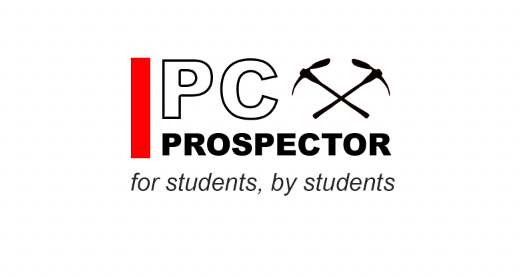2026 Olympics
Snow falling on rooftops, skiers marching towards the slopes, coffee shops packed with customers. It’s the Winter of 2002, and the Salt Lake City Winter Olympics are in full swing. This picture could be painted again if Salt Lake is able to obtain the Winter Olympics in 2026 or 2030, officials from Utah have not announced a formal bid, but leaders including Scott Blackmun, Wayne Niederhauser, and Fraser Bullock are seriously considering a new bid.
Salt Lake has formed an exploratory committee, which is a group of officials that will decide if making a bid for the Olympics is worthwhile. This committee includes Governor of Utah, Gary Herbert, Mayor of Salt Lake City, Jackie Biskupski, and other public officials. Park City Mayor-Elect Andy Beerman is also a part of this committee, hoping to negotiate Park City’s role in the games. The United States Olympic Committee (USOC) must submit a candidate host for the 2026 Olympics before March 31, 2018, and the creation of this group will further boost Salt Lake’s chances.
Park City will hold internal talks to determine the public’s willingness towards hosting the events. If these talks go well, and public sentiment is high, then Park City will likely play a large role in Salt Lake acquiring and hosting the games, just as they did in 2002.
The competition for the bid
Salt Lake City is one contender, but it is unknown how many other US cities will bid to host the 2026 Olympics. The CEO of the United States Olympic Committee (USOC), Scott Blackmun, stated that there are many cities contemplating the idea.
“We’re grateful we have multiple cities who are interested in looking at [a 2026 bid],” Blackmun said. “More than one U.S. city to participate in the quiet, informational phase.” Experts believe the primary competition against Salt Lake within the U.S. is Denver, Colorado. Denver has never hosted the Olympics, but once won a bid to host in 1976, only to lose the bid after a citizens voted against it.
Innsbruck, Austria, once the primary international rival for the bid, dropped out of the race on October 16th, increasing Salt Lake’s chances. Prior to dropping out, Innsbruck was the favourite to host the event, but votes in a referendum decided against it, stating that the costs would be too high.
Telemark, Norway is the last high-profile competitor. Norway hosted the events in 1952 and
1994 and is hoping to host them once again.
The likelihood of another Olympics in Salt Lake, or any other US city, has decreased because Los Angeles won the bid for the Summer Olympics in 2028.
Blackmun explained that Los Angeles hosting the 2028 Summer Olympics would make a Salt Lake bid much harder. As Los Angeles will have the 2028 Summer Olympics, the International Olympic Committee may be reluctant to host back-to-back Olympics in the United States. Along with this problem, if two US cities host the Olympics sequentially, the USOC budget would have to be split between the two cities. There is not a budget for two cities to host so closely together.
Salt Lake would not have to spend as much money to host as they did in 2002, because most of the facilities are already constructed and still host elite events. Some of these facilities include the speed skating oval, the basketball arena (used for skating and hockey during the Games), the Utah Olympic Park Track located in Park City, improvements to the mountains for skiing and snowboarding, and many others. However, $40 million of their budget would pay for upgrades to existing venues and facilities.
While there would be a smaller budget for both of these major cities, it is still a possibility that the US could host two games in a row. If Salt Lake does join Los Angeles as hosts for Olympics in the 2020s, it will be the first time that one nation has hosted back-to-back Olympic Games since Germany in 1936.
Utahns with PCHS ties voice their opinion
One of the supporters of Salt Lake’s Olympic bid is Larry Nielson, husband of PCHS English Teacher Sharon Ellsworth-Nielson. He was a volunteer driver for the major sponsors at the 2002 Winter Olympics. Nielson drove the executives of different sponsors, like McDonald’s and Coke, to different events. While he was driving, he developed bonds with many different types of people.
“It was a great time to make acquaintances and friendships, and some of those friendships I still have 15 years later,” Nielson said.
“By far and away, it was just a great opportunity for the world to come together and associate with people from all over,” Nielson explained, describing his experience at the 2002 Olympics. Those Olympic games had about 2,400 athletes from 78 different nations competing in 78 varied events.
Nielson not only relished the 2002 Winter Olympics, but is also a supporter of the potential 2026 or 2030 Winter Olympics occurring in Salt Lake once again.
“I just think that it’s a wonderful thing for the world to come and see what we enjoy so much here,” exclaimed Nielson “I don’t mind the people, I don’t mind the traffic, I don’t mind the parties, I don’t mind anything that comes along with the Olympics, and I’m not adverse to it at all. I am a very large proponent of the games potentially coming.”
He went on to explain how the 2002 Winter Olympics not only benefited him, but was also a great financial opportunity for both the Olympics and Salt Lake. “Everything I read told me that the Salt Lake games netted more profit than the Atlanta Games had just a couple of years before, during the Summer Olympics, because the Salt Lake games had been run so well and had such a good volunteer crew,” explained Nielson. At the time, the Salt Lake Olympics was the largest of any other Winter Olympics, and broke records for the most money raised and the most TV viewers compared to any other Olympic venue.
Nielson may support Salt Lake hosting the games once more, but this is not the opinion of all residents. Ed Mulick, resident of Park City for 30 years and Park City High School teacher, said he is a big fan of the Olympics, and enjoyed the 2002 Winter Olympics, but is “not a big fan [of Salt Lake hosting the games in 2026]. Once is enough.”
Mulick explained,“By exposing Park City to the world it made more people want to move here. I’m selfish and I don’t want to share our beautiful mountains. We are loving them to death.”
Since the 2002 Olympics, Park City’s population has increased, but there has also been improvements in facilities, jobs, and infrastructure from those Games. Mulick acknowledged this, saying how the major positives of the 2002 Olympics were that”Olympic facilities were built, infrastructure was built and increased tax revenues for the state.”
The popular opinion about the hosting of the Winter Olympics will be revealed through the exploratory committee, and based on this, it will be decided whether or not the USOC will choose Salt Lake as their candidate for the games. Excitement or dread, depending on one’s opinion of Salt Lake becoming the host of the games, is building, and the host of these events in 2026 will be announced in July, 2019.





